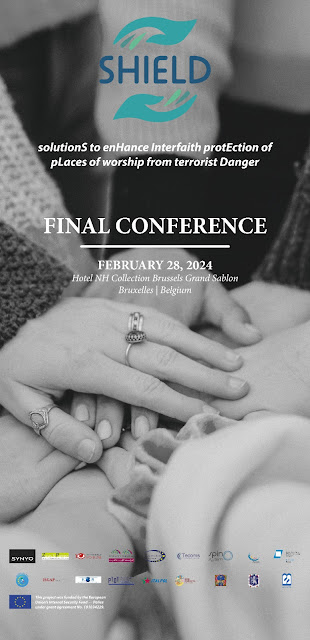 In response to terrorist attacks that occurred in Europe in the last decade, the European Commission has funded a wide range of projects that develop effective strategies to protect public spaces. Places of worship, such as mosques, churches and synagogues, are hereby of particular importance, as they are considered sensitive targets due to their high symbolic value of civil coexistence and social and cultural cohesion.
In response to terrorist attacks that occurred in Europe in the last decade, the European Commission has funded a wide range of projects that develop effective strategies to protect public spaces. Places of worship, such as mosques, churches and synagogues, are hereby of particular importance, as they are considered sensitive targets due to their high symbolic value of civil coexistence and social and cultural cohesion.In order to address this issue, the European Commission has, through its Internal Security Fund, funded amongst other initiatives the SHIELD Project, which aims to protect places of worship from the risks of violent extremism. To achieve this objective, the project connects and is jointly implemented by 18 partners from 10 EU countries, including representatives of the Jewish, Christian and Muslim religious communities. Through an in-depth analysis of violent attacks over the last twenty years against places of worship, the project analysed potential vulnerabilities, especially of smaller buildings and local communities, for which security was often not a priority. However, in the light of the Middle East conflicts, the recent attacks in France and Belgium and a global increase in incidents of anti-Semitism and Islamophobia, security has become a key factor for places of worship and has raised an alert from various intelligence or counter-terrorism agencies. In response to this heightened need, the SHIELD project has been able to draw from its extensive research, conducted interviews and inspections of various types of buildings, to provide places of worship with tools and methods to assess their potential risk level and specific vulnerabilities. These tools are further supported by detailed overviews of different technical and procedural means that can be used to address the identified risks.
In order to make these tools even available on a wider-scale, the project has compiled its main deliverables, reports and findings into an easy-to-use handbook, designed specifically for decision makers, leaders of religious communities and law enforcements agencies at local level, which will be presented on the occasion SHIELD Final Conference in Brussels next February 29.
